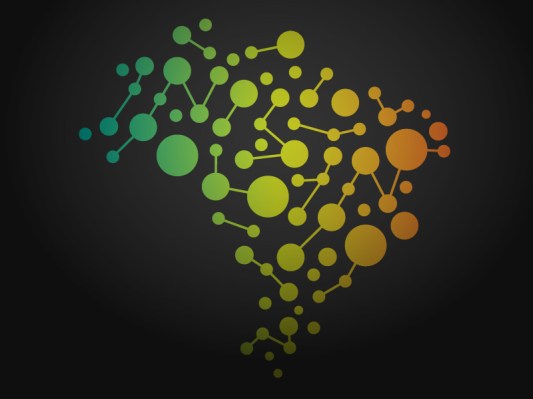Editor’s note: Julie Ruvolo is a freelance writer and editor of RedLightR.io and RioChromatic.com.
Brazil’s Congress is days away from voting on Marco Civil, the country’s first major Internet legislation, and the big issue at stake is net neutrality.
The bill, known as the “Constitution of the Internet,” has three major themes: net neutrality, freedom of expression, and Internet security. It had been rolling around Congress for two years until Edward Snowden’s revelations of the NSA spying on Brazilians — including the president — prompted President Dilma Rousseff to prioritize the bill, suspending voting on all other legislation.
That was last November. The issue that mobilized over 300,000 Brazilians this past week — no small feat considering it was Carnaval — is the net neutrality provision. Congressman Eduardo Cunha, ex-president of Rio’s telco provider before privatization in 1998, and lobbyist for Brazil’s major telcos, is leading the effort to remove the net neutrality provision from the bill, which would allow telcos to limit access to Internet content. Referring to the bill’s latest version, Cunha said, “I didn’t read it and I don’t like it.”
Without neutrality, the Internet looks more like cable TV, where providers can offer different service packages. … Today that sounds like an aberration, but without net neutrality, it’s a possibility.
“Without neutrality, the Internet looks more like cable TV, where providers can offer different service packages,” said Ronaldo Lemos, a law professor, partner with PNM Advogados, director of the Institute for Technology & Society in Rio de Janeiro, and board member at Mozilla. “Basic service would include email and the social networks. ‘Premium’ would let you watch videos and listen to music. ‘Super Premium’ would let you download. Today that sounds like an aberration, but without net neutrality, it’s a possibility.”
Lemos was one of the collaborators on the original draft of Marco Civil in 2009. In partnership with the Ministry of Justice and a group of law professors, including Bruno Magrani, Facebook’s current head of public policy in Brazil, the original bill was drafted through a participatory process to establish a bill of rights for Brazil’s Internet: protecting user privacy and freedom of speech, assuring net neutrality, establishing safe harbor for online service providers. Lemos says it was one of the first examples of collaborative lawmaking in Brazil.
Google, Yahoo, Facebook and MercadoLibre all signed a public letter of support for the original draft, but that was before it suffered dozens of amendments, including a “forced localization” provision that would require foreign Internet companies like Google and Facebook to store locally gathered data inside Brazil — a strategy Internet security entrepreneur Marco de Mello called a “misguided attempt at solving a much broader problem than where data is warehoused.”
“That can change significantly the way the Internet is organized, and influence other countries to do the same,” Lemos says. “The question now is whether Congress will continue to disfigure the project.”
Mass mobilization in support of net neutrality has been the result of efforts by the same players who rose to prominence during Brazil’s coming-of-age protests that started last June. They are precisely the kinds of bare-bones budget, activist websites that could suffer discriminated access if net neutrality does not pass.
Meu Rio, a social mobilization platform that has become an extremely useful organizing tool for protesters, sent members to Brasilia in favor of Marco Civil and created a “Save the Internet” campaign that mobilized more than 11,000 Brazilians to email their congressmen in favor of net neutrality.
MidiaNinja, an activist media collective that also rose to prominence during the protests, has been tweetcasting the congressional sessions.
And this Wednesday, along with the Brazilian Institute in Defense of the Consumer, Avaaz and a dozen other civil society organizations, Meu Rio will display messages from Brazilians in support of the bill on a big screen installed in Congress.
The whole framework of how the Internet is regulated in Brazil is at stake.
The biggest turnout in support of Marco Civil has come from a petition on Avaaz by Gilberto Gil, a musician and former Minister of Culture in the Lula administration, which gathered over 300,000 signatures in 48 hours.
Diego Casaes, global campaigner for Avaaz and former editor of Global Voices in Brazil, called Marco Civil a “Homeric struggle between civil society and telecommunications companies.”
“I’m sure you’ve noticed that our media is dominated by Globo,” says Bia Granja, co-founder of YouPix, an epicenter of Brazilian web culture, which has been publishing real-time updates and detailed explanations of Marco Civil.
“But for the first time, we’re seeing big changes in the media paradigm. Social networks are tools of empowerment. So it’s a really important moment we’re living right now.”
Marco Civil would be Brazil’s first major Internet legislation. “As a result of having no laws, court decisions here are quite a mess,” Lemos explains. Unlike in the U.S., “Brazilian courts are not bound by precedents, and any judge can decide according to her own discretion. That creates a lot of uncertainty for internet entrepreneurs in the country, especially startups, which cannot always afford to count on good lawyers to cope with the uncertainty in legal terms.
“The whole framework of how the Internet is regulated in Brazil is at stake.”
Congress is expected to vote on Marco Civil this Wednesday, March 19.
Image: Shutterstock
